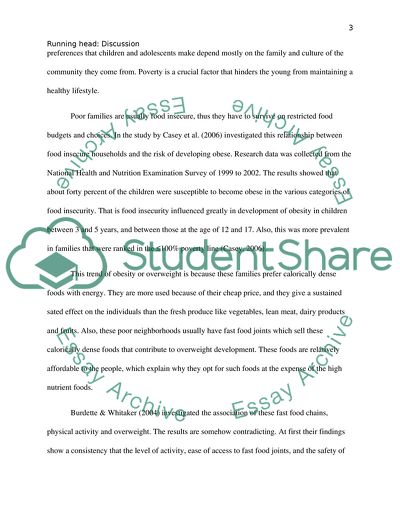Overweight, Cheap Food and Poverty: Is there a Correlation - Assignment. https://studentshare.org/medical-science/1811564-overweight-cheap-food-and-poverty
Overweight, Cheap Food and Poverty: Is There a Correlation - Assignment. https://studentshare.org/medical-science/1811564-overweight-cheap-food-and-poverty.


